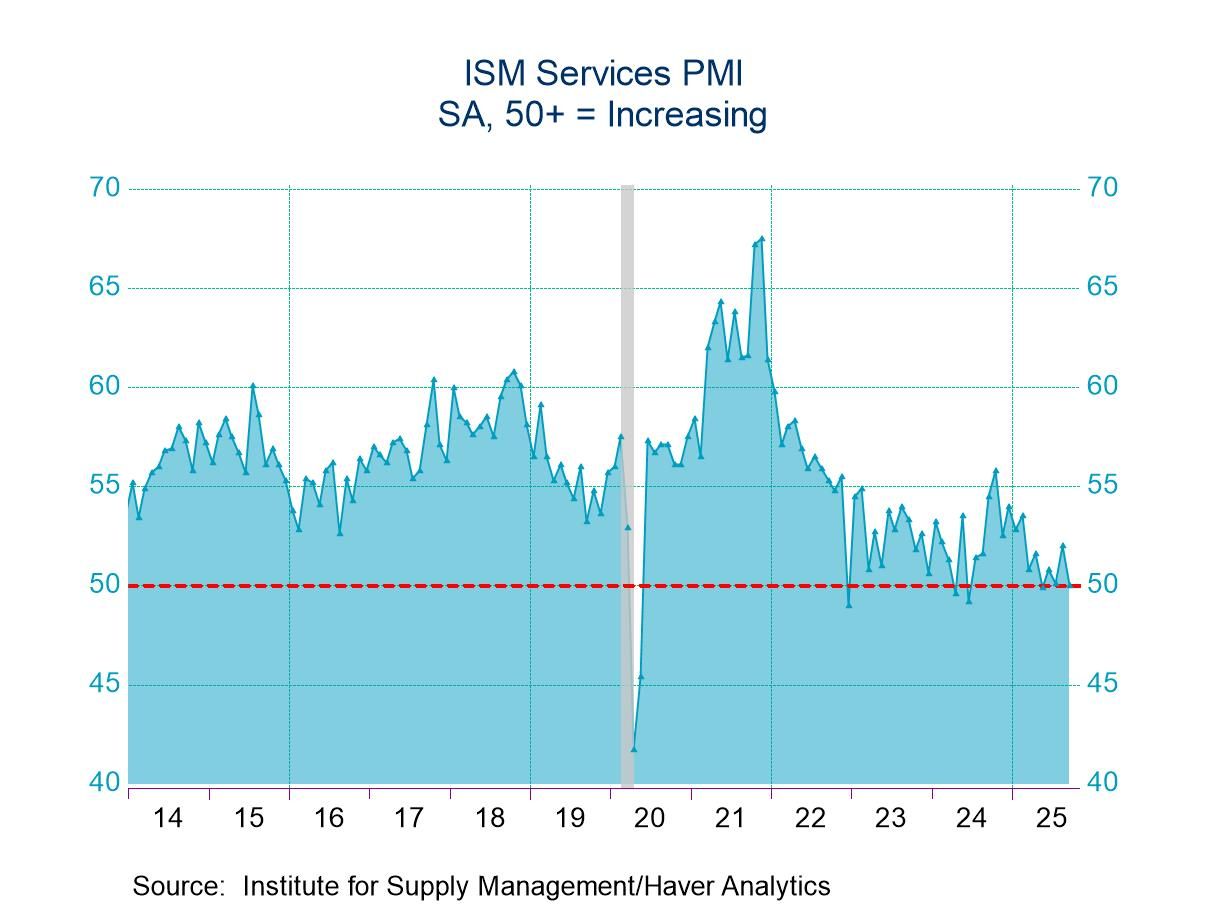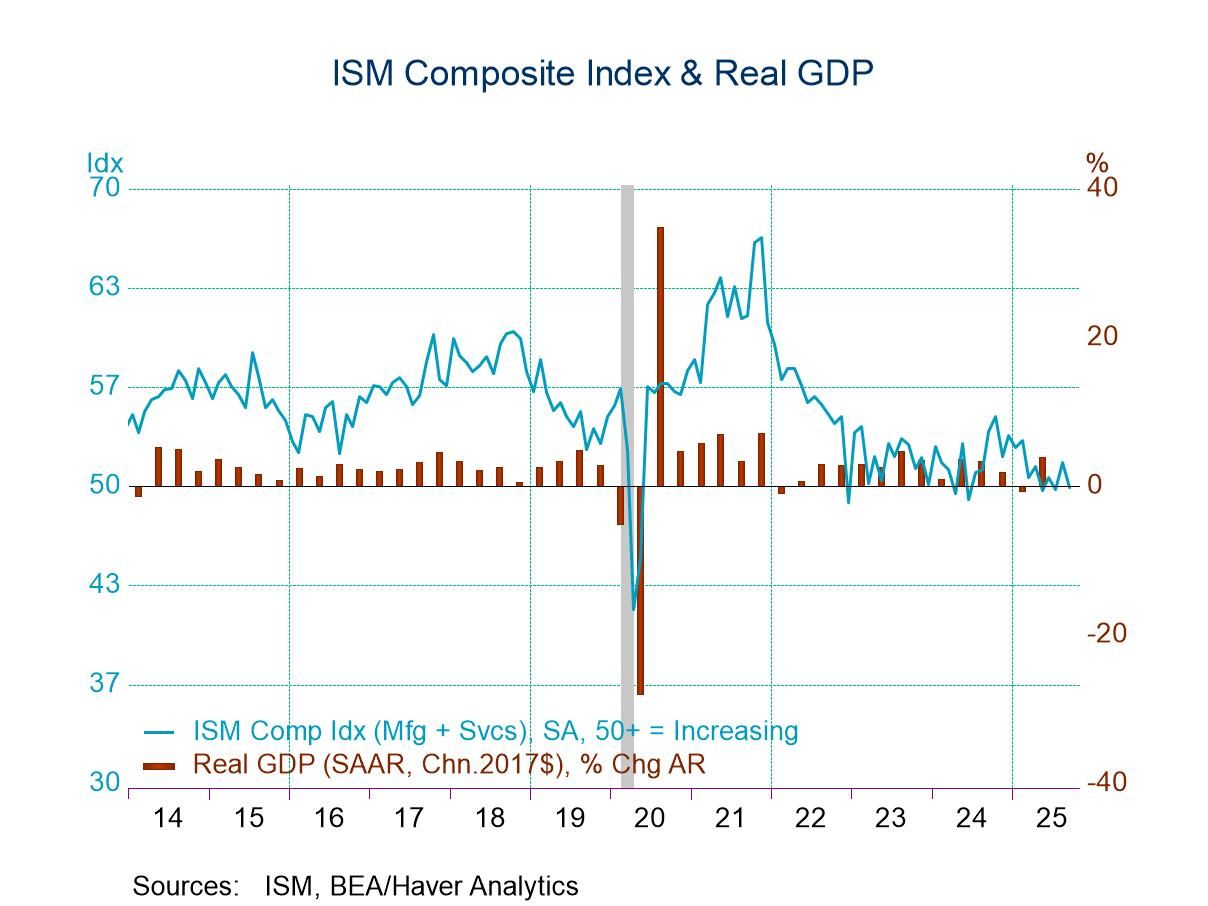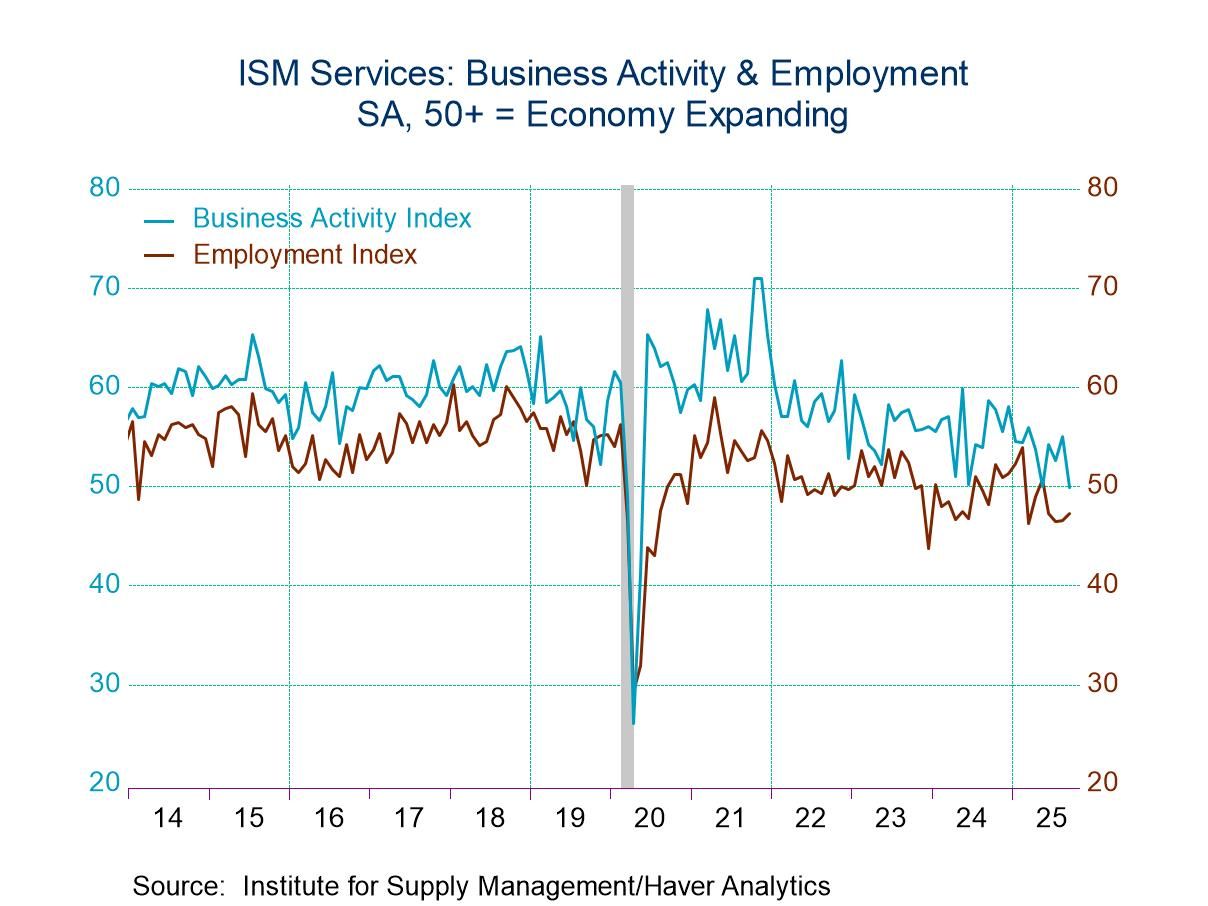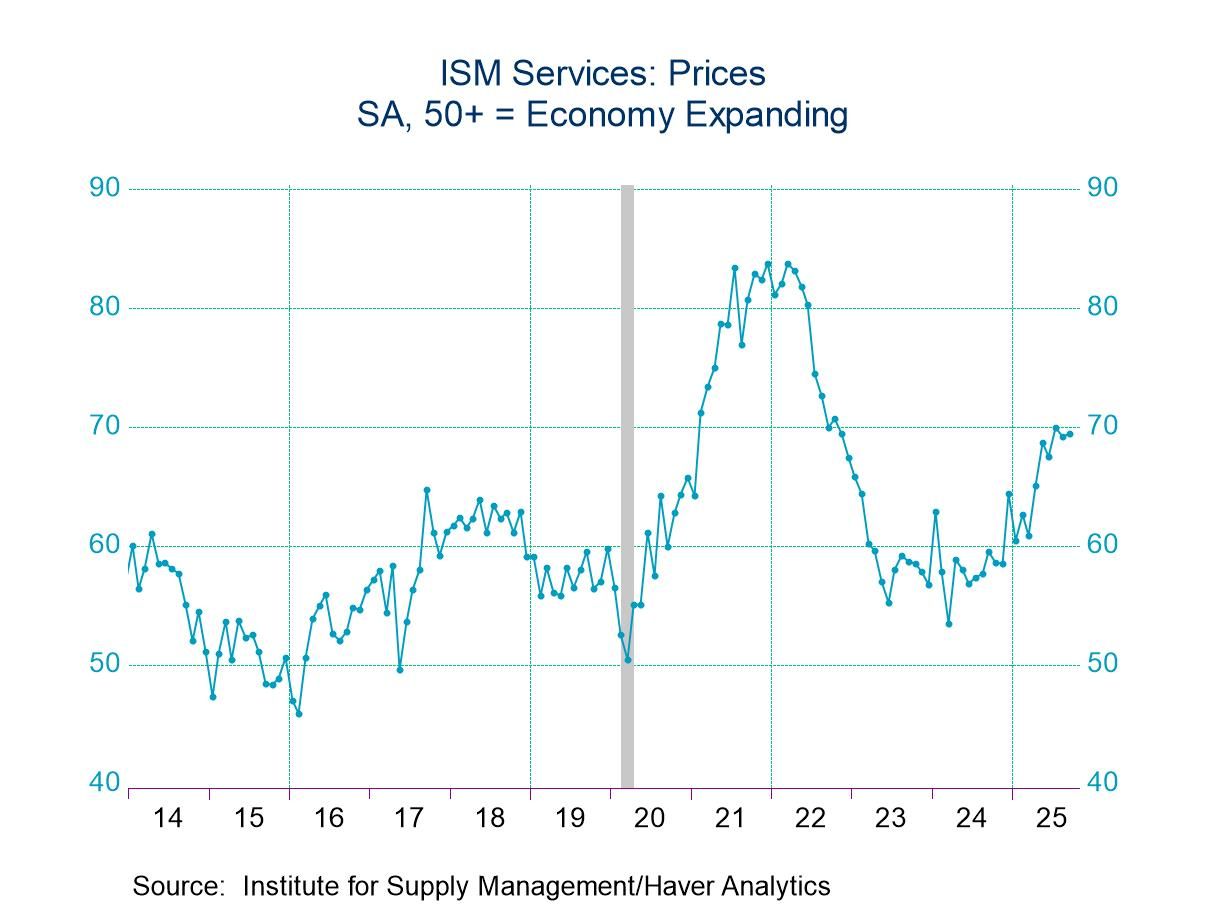U.S. ISM Services PMI Declines in September; Price Index Edges Higher
by:Tom Moeller
|in:Economy in Brief
Summary
- Total services index falls to four-month low.
- Business activity and new orders weaken.
- Prices index moved up sharply from 2024 low.


Business in the service sector weakened last month. The Services PMI fell to 50.0 during September after rising to 52.0 in August, following a decline to 50.1 in July, according to the Institute for Supply Management. The index has trended lower since February. The index hit a recent high of 55.8 in October of last year and remains below the all-time high of 67.5 in November 2021. The Action Economics Forecast Survey expected a reading of 51.9 in September.
The ISM Composite Index, developed by Haver Analytics, combines the services index and the ISM manufacturing index released on Wednesday. This index fell to 49.9 in September after rising to 51.6 in August, extending a decline since a high of 54.7 in October of last year.
The components of the services index were mixed last month. The business activity index declined to 49.9 last month after rising to 55.0 in August, below its high of 70.9 in both October & November of 2021. Twenty-one percent (NSA) of respondents reported improved activity while 15.1% reported decline. The new orders index weakened to 50.4 after increasing to 56.0 in August. Twenty-one percent (NSA) of respondents reported improved orders while a steady 16.2% reported decline. Working higher, the employment series rose to 47.2, its highest level in three months, after minimal m/m change at 46.5 in August. A higher 12.1% (NSA) of respondents reported increased employment while a lessened 16.1% reported decline. The supplier delivery series rose to 52.6 in September after falling to 50.3 in August. A slightly higher 4.6% of respondents (NSA) reported faster delivery speeds while a much higher 9.7% reported slower speeds.
On the inflation front, the prices index edged higher to 69.4 in September after easing to 69.2 from 69.9 in July. The index has increased from its March 2024 low of 53.5. An increased 39.9% (NSA) of respondents reported higher prices while an improved 3.2% reported lower prices.
Additionally, the new export orders index fell to 46.5 (NSA) in September following a decline to 47.3 in August. A fairly steady 11.4% of survey respondents reported higher exports while a higher 18.4% reported decline. The imports index fell to 49.2 last month after rising to 54.6 in August. A lessened 11.7% of respondents reported higher imports while an increased 13.4% reported decline. The inventory change index fell to 47.8 after rising to 53.2 and the order backlog index rose to 47.3 in September after declining to 40.4 in August. These series are not seasonally adjusted and not included in the ISM Services PMI total.
The ISM Services PMI is a composite index consisting of four equally weighted diffusion indexes: Business Activity, New Orders, Employment, and Supplier Deliveries. A reading above 50 indicates expansion in the services sector, while below 50 suggests contraction. Supplier Deliveries is the only ISM index that is inversed; a reading above 50 indicates slower deliveries.
The ISM figures are available in Haver's USECON database, with additional detail in the SURVEYS database. The expectations figure from Action Economics is in the AS1REPNA database.
Industry Decline and Household Finances from the Federal Reserve Bank of San Francisco is available here.


Tom Moeller
AuthorMore in Author Profile »Prior to joining Haver Analytics in 2000, Mr. Moeller worked as the Economist at Chancellor Capital Management from 1985 to 1999. There, he developed comprehensive economic forecasts and interpreted economic data for equity and fixed income portfolio managers. Also at Chancellor, Mr. Moeller worked as an equity analyst and was responsible for researching and rating companies in the economically sensitive automobile and housing industries for investment in Chancellor’s equity portfolio. Prior to joining Chancellor, Mr. Moeller was an Economist at Citibank from 1979 to 1984. He also analyzed pricing behavior in the metals industry for the Council on Wage and Price Stability in Washington, D.C. In 1999, Mr. Moeller received the award for most accurate forecast from the Forecasters' Club of New York. From 1990 to 1992 he was President of the New York Association for Business Economists. Mr. Moeller earned an M.B.A. in Finance from Fordham University, where he graduated in 1987. He holds a Bachelor of Arts in Economics from George Washington University.
More Economy in Brief
 Global| Feb 05 2026
Global| Feb 05 2026Charts of the Week: Balanced Policy, Resilient Data and AI Narratives
by:Andrew Cates






